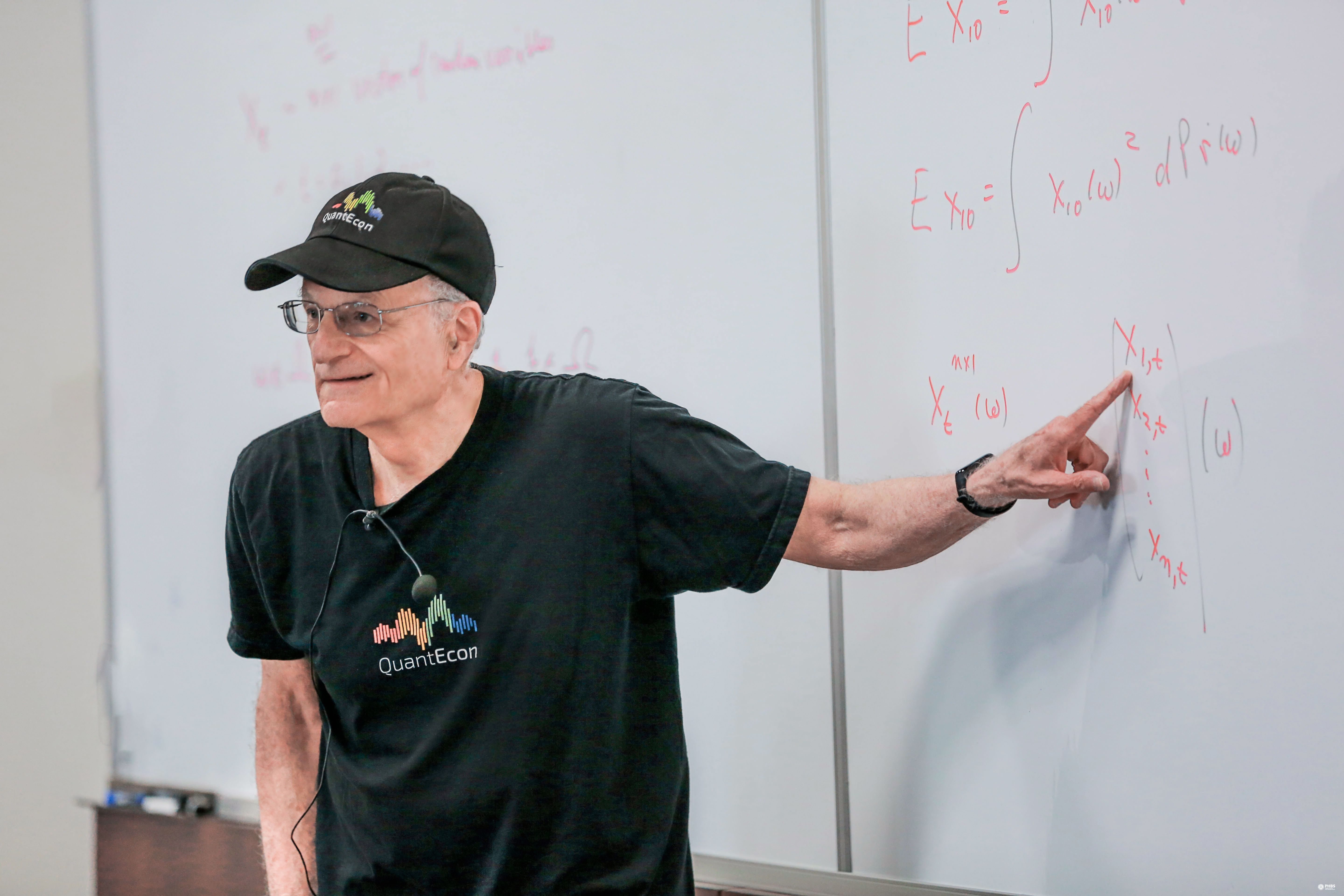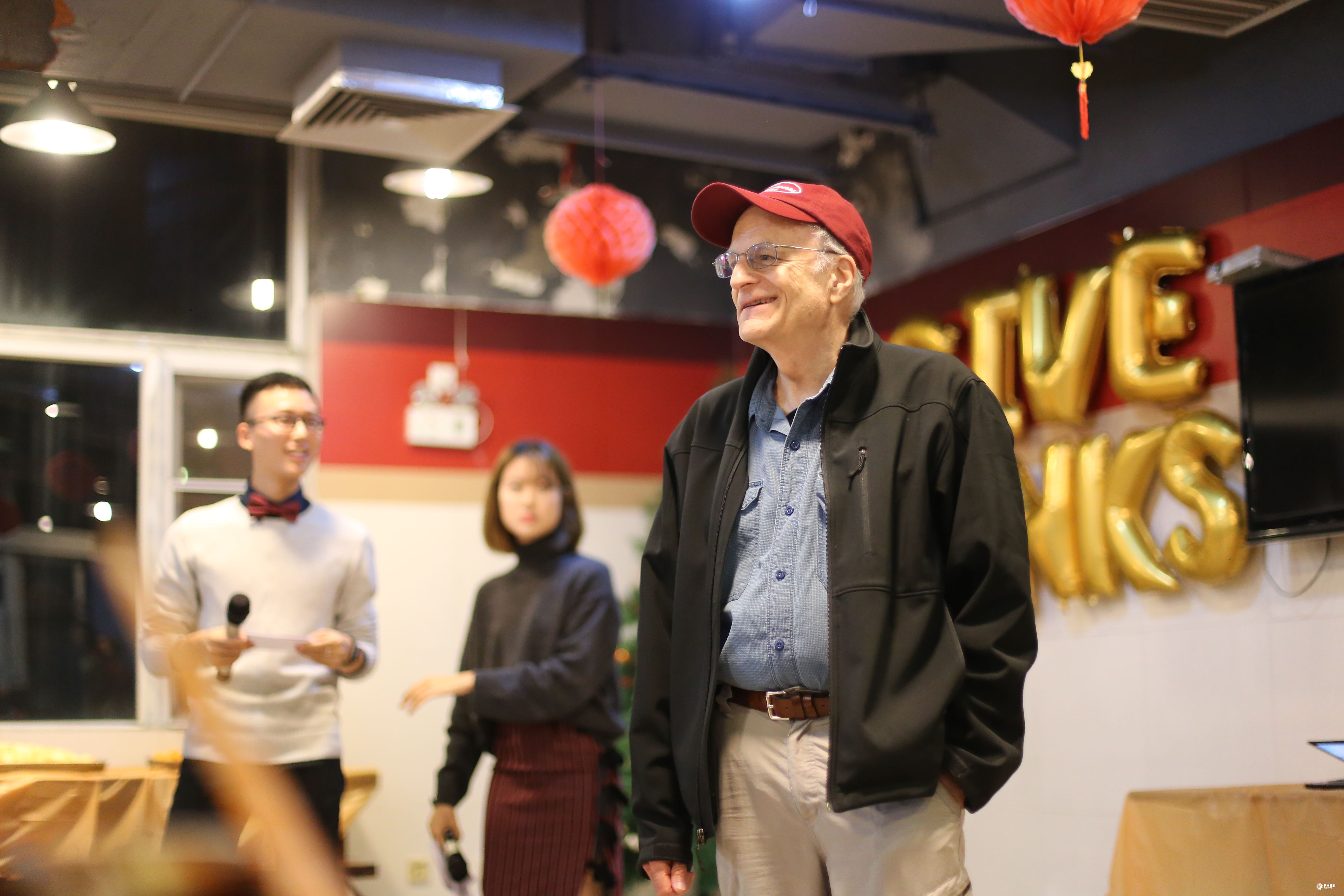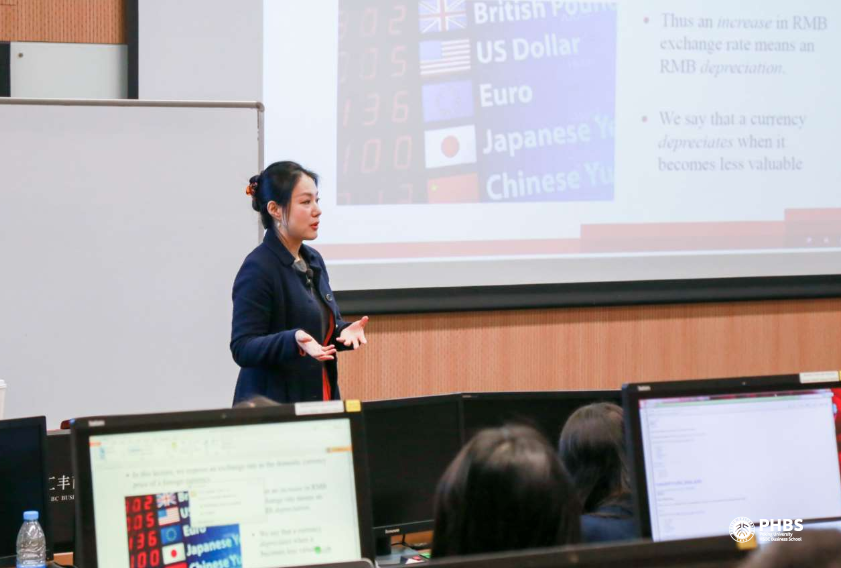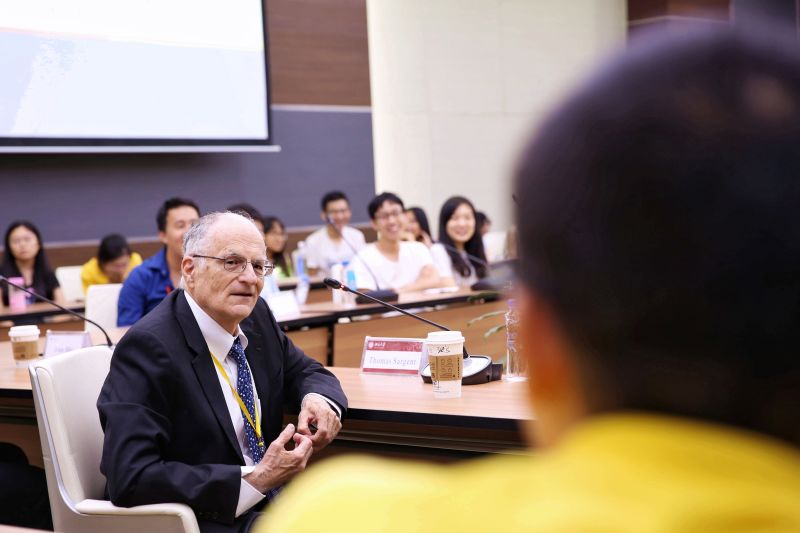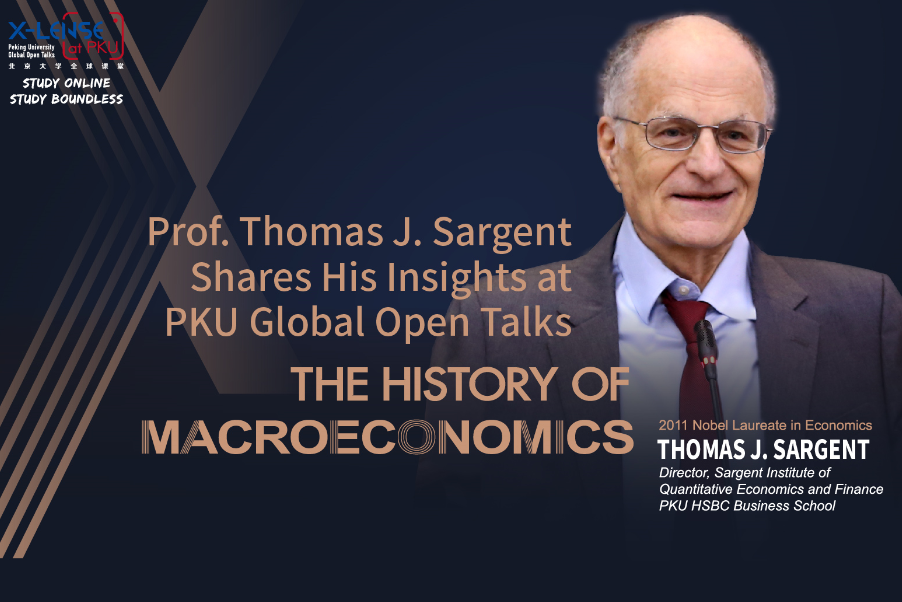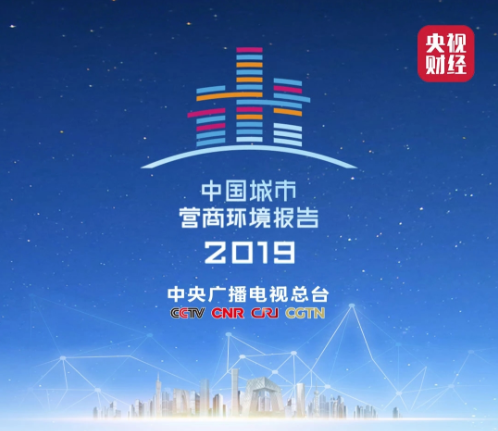By Annie Jin
Edited by Priscilla Young
As the world’s economy undergoes profound changes, how do we understand complex issues and seek solutions? In the 21
st century, it is largely through mathematics and statistics.
“Our institute strives to put mathematics and statistics at the service of quantitative analysis of questions about economics, finance, and government policy,” remarked Professor Thomas Sargent, the 2011 Nobel laureate in economics who joined PHBS in 2017 as the founding director of the Sargent Institute of Quantitative Economics and Finance (SIQEF).
A self-described “positivist,” Sargent explained that SIQEF “crunches” extensive sets of data and does theoretical as well as empirical research to glean insights about the real world. “We provide a platform for developing computational economics and finance based on user-friendly and powerful open source languages, especially Python and Julia.”
Professor Sargent teaches advanced macroeconomics for PHBS students
Sargent is in residence at PHBS two months each year leading a team of top researchers from PHBS and overseas universities, such as the University of Chicago, New York University, and Australian National University. The institute has also provided talented students nationwide with opportunities to take part in its annual winter camp and launched a specialized doctoral program.
Candy Store
Of the six Nobel laureates who have set up research institutes in Shenzhen, Sargent is the only one with an outstanding reputation in the social science of macroeconomics.
“What I hope to do is join my colleagues here to help shed some light on economic theories as well as empirical studies,” said Sargent, who is among a new breed of professors using Julia and Python both for teaching and cutting-edge research. Noting that faculty members here are “very young, ambitious and smart and work really hard,” he admitted he could benefit from keeping his ears open and listening. Sargent has enjoyed their seminars on various economics, and finance topics.
Professor Sargent joins faculty and students to celebrate the 2017 Thanksgiving and gives a toast
“They’re bringing new things to an old person like me,” Sargent mused, adding the metaphor that economics or almost any academic discipline is kind like a sport, the most productive players are always young. Each time a new topic was raised, he would ask presenters to send him related papers.
“So it’s a great environment, for me. It’s like a candy store.”
Sargent, along with the SIQEF team, has also made efforts to valorize young PHBS researchers’ findings by translating this knowledge into solutions. For example, SIQEF has been working with Ping An Technology to develop a Nowcasting platform since signing a joint strategic research agreement in 2017 for macroeconomics and finance.
“This project aims to set up a warning system based on big data to monitor China’s macroeconomic conditions in real time,” said Shi Jiao, SIQEF vice director and PHBS assistant professor. Rather than predicting the distant future, Nowcasting uses ideas from forecasting to measure the current state of the world and has been applied in many institutions worldwide, in particular the central banks.
In addition, the institute provides practical advice for government departments by developing policy analysis models. Shi further pointed out, “Based on the most advanced findings in macroeconomics, we aim to make improvements and adoptions to our research to better conduct macroeconomic analysis in China.”
Said Sargent, “In the future, we can do more and more as technology advances,” referring to China’s various resources and its leading role in machine learning, as the institute will probe into the frontiers of quantitative economics and finance using programing languages and models.
Training Camp
When Python meets economics, what’s next? Going beyond its academic undertakings, SIQEF also provides opportunities for students to get involved and figure out the answer through its annual winter camp, a two-week intensive training in Python programming and its applications in economics.
“I have realized that mathematics and programming are so useful and powerful,” said Huang Xinrui , a graduate student in applied mathematics at Sun Yat-sen University. He attended the 2019 winter camp, along with other 30 students from China’s key universities including Nankai, Peking, Renmin and Tsinghua.
In the first five days, students take a set of courses ranging from basic syntax and packages in Python, as well as tools for various applications. After that, instructors teach them how to apply these tools to economics-related topics, such as inequality, exchange rate models, monetary policy and shadow banking.
Professor Shi teaches winter camp students how to use tools at financial lab
“The tools we deliver are to empower students,” emphasized Shi Jiao. She encouraged students to enjoy the training rather than see the extremely challenging courses as “torture.”
Coursework is provided by several instructors from universities and institutes worldwide, including New York University, the Federal Reserve Bank of Atlanta, Hong Kong University of Science and Technology, PHBS and QuantEcon, a nonprofit international organization dedicated to improving economic modeling led by renowned economists.
A sampling of tools taught at the Winter Camp includes Regression and Maximum Likelihood, Bayesian Inference, Finite Markov Chains, and Linear Algebra with Python, among others. Stating that “Python can do a lot of favors for economics research,” Sargent teaches during the winter camp, guiding students in programming and using Python to express ideas in an accessible way.
He regards interacting with students as a “very fun and rewarding” experience, adding, “Every time I’m lecturing, it’s active. It’s active in a sense that the students are teaching me as much as I’m teaching them.”
The winter camp also held a Nobel Laureate seminar, where students could enjoy discourse with Sargent. Topics ranged from exploring economic tools, reconciling academic disputes, and career advice.
To enhance classroom learning, students also worked in the financial lab. They assessed both real-time and historical data about financial markets around the world through Bloomberg terminals and used the tools and modeling techniques they learned to analyze data. They also visited leading companies in Shenzhen, such as Ping An Technology, where they gained a better understanding about fintech, deep learning and artificial intelligence, as well as how to apply models to real-life scenarios.
Talent Powerhouse
“I enjoy the full devotion to academics and study here, though the courses are quite intensive,” said He Hemin , a first-year doctoral student who also attended the winter camp before enrolling in the Ph.D. program in quantitative economics. Initiated by SIQEF, this program, launched in fall 2018, is designed to focus on fundamental training as well as applications of modern research tools.
Professor Sargent takes questions from PHBS students
“By presenting these tools to students in a patient and one-step-at-a-time way, we intend to empower them and make them confident in understanding and creating economic theories,” remarked Sargent, who teaches advanced macroeconomics for doctoral students.
According to SIQEF, the program combines and improves aspects of the most successful programs worldwide, and Ph.D. students are required to study math, economics, econometrics, and even programming in a series of courses. These were designed by Sargent in which he selected chapters from various textbooks and condensed them into a coherent and comprehensive curriculum.
“Students will be tooled up and empowered, so they will be able to participate in applied research quickly,” Sargent said. He also noted that students are in a good position to take related courses as the program has ambitious and technically proficient faculty members who do applied research in a variety of fields.
Yet another learning opportunity is open to full-time master’s degree students at PHBS in the honorary “Elite Master Program” where they can take core Ph.D. courses. Said Shi Jiao, “Master students who are interested in pursuing an academic career in the future, as well as those who intend to employ state-of-the-art tools in future work, can benefit from the opportunity to enroll in the Ph.D. curriculum.”
“The elite master program should open doors to ambitious students by providing them with tools and understandings and empowering them intellectually,” Sargent said, noting that tech firms are eager to bring an economist’s toolkit into more parts of the business.
“Today there are good jobs for outstanding graduates at central banks, various governments, financial institutions, and private non-university institutions,” he pointed out, saying that some outstanding Ph.D. economists also do excellent research work for Alibaba and Amazon, “where wonderful hardware and software research facilities and support are provided.”





